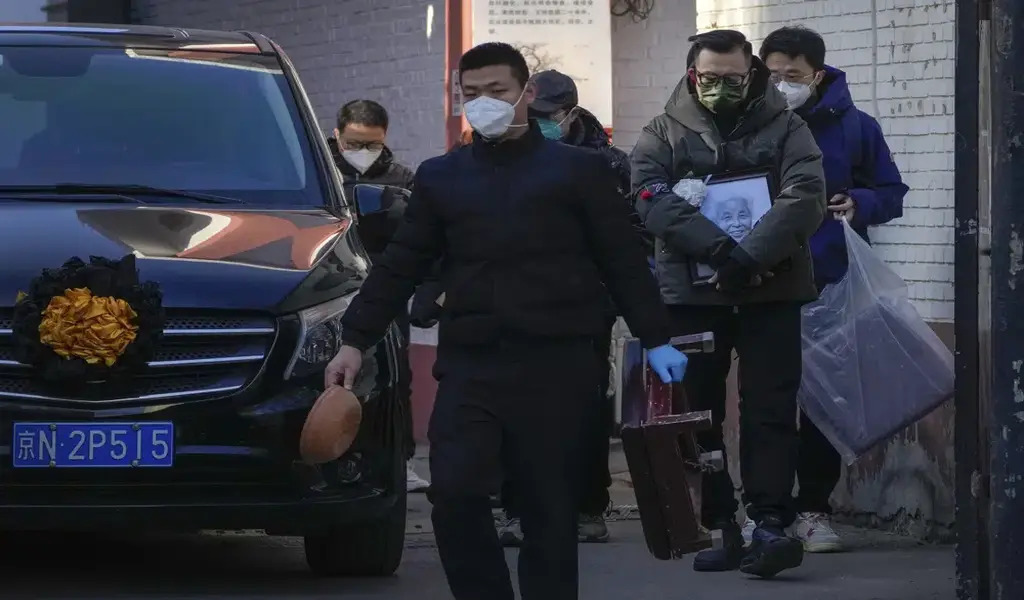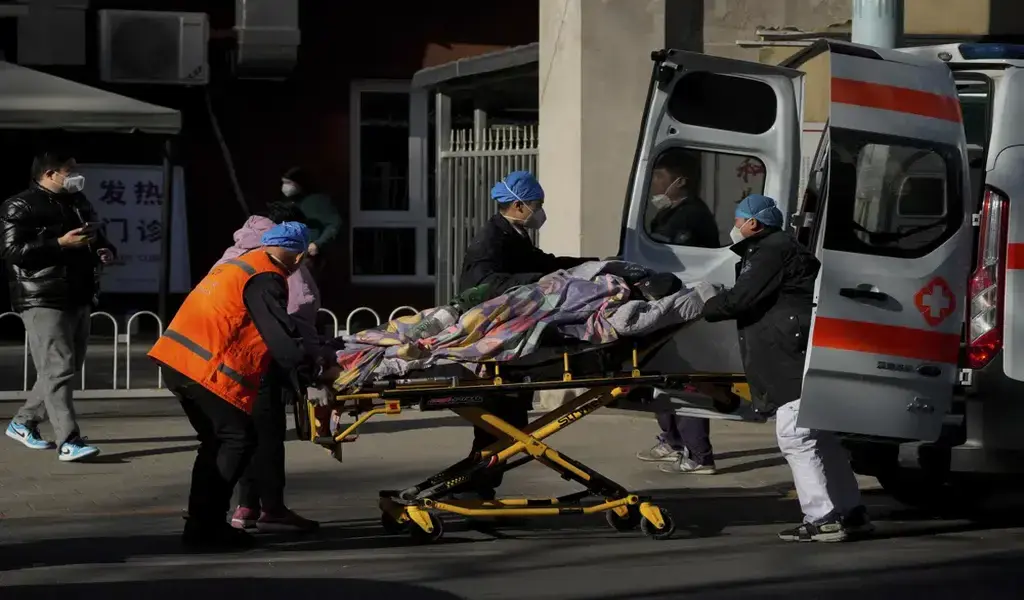(CTN NEWS) – BEIJING – Chinese health authorities confirmed two more COVID-19 deaths on Monday, both in the capital Beijing. These deaths are the first to be reported in some weeks as the country expects a rise in diseases following the relaxation of its rigorous “zero-COVID” policy.
Even though numerous unofficial reports of a recent surge of cases exist, China has not reported death from COVID-19 since December 4.
这是英国每日邮报今天早晨的报道。到处是排队的尸体,但是政府从12月4号以来, 没有一例死亡报告。这种屌鸡巴政府要它干嘛啊?Covid deaths rise in China.
The government has also not officially reported a death from Covid-19 since earlier this month on December 4.
— Tim Quinn (@QinnnTim) December 17, 2022
With the most recent deaths, the National Health Commission increased China’s total COVID-19 deaths in the past three years to 5,237 out of 380,453 illness cases.
These figures are significantly lower than those of other major nations, but they are also based on statistics and information-gathering techniques that have been called into question.

Chinese health officials only include persons who died directly from COVID-19; they do not include people whose underlying illnesses, such as diabetes and heart disease, were made worse by the virus.
Guidelines in many other nations provide that any death in which the coronavirus is a cause of, contributor to, or result of the death is to be considered a COVID-19-related fatality.
The declaration follows testimony from family members and funeral industry workers who wished to remain anonymous for fear of retaliation that the number of deaths linked to COVID-19 was rising.
In contrast to the U.S., where the death toll has surpassed 1.1 million, China has long praised its strict “zero-COVID” policy for keeping the number of cases and fatalities comparatively low.

However, the policy of lockdowns, travel bans, required testing, and quarantines severely stressed China’s society and its economy, seemingly persuading the Communist Party in power to listen to outside counsel and change its course.
The loosening started in November and picked up speed when demonstrations against the restrictions in Beijing and several other cities turned into calls for the resignation of President Xi Jinping and the Communist Party.
Marking the highest level of public discontent in decades.
China has said it would stop reporting asymptomatic COVID-19 cases since they've become "impossible" to track with mass testing no longer required, another step in the country's uncertain exit from some of the world's strictest antivirus policieshttps://t.co/3VgVRGSCdt
— Economic Times (@EconomicTimes) December 14, 2022
As asymptomatic COVID-19 cases are now impossible to trace because mass testing is no longer necessary, the government said on Wednesday that it would stop reporting them.
Most testing is now done privately, and patients with minor symptoms can recover at home instead of being sent to a centralized quarantine facility.
It is now more challenging to understand the scope of the outbreak or its trajectory due to a lack of data.

Health specialists have predicted a potential large wave of new infections and a surge in deaths over the next month or two, particularly among the elderly.
Nevertheless, a significant decline in economic activity and anecdotal evidence of the virus’ spread indicate to an increasing caseload.
China is attempting to convince reticent elderly and other at-risk individuals to be immunized, but it appears to have only fair success.
Before the Lunar New Year travel surge in January, which will see migrant workers returning to their hometowns, the other significant issue is socking up health supplies in smaller cities and the vast rural hinterland.

To conserve resources, the number of fever clinics has increased in urban and rural regions, and individuals are urged to stay home unless they are very ill.
Hospitals are similarly short-staffed, and according to reports, employees have been requested to return to work as long as they are not feverish.
RELATED CTN NEWS:
TikTok Probed For Illegal Operation In Taiwan
North Korea Claims That Recent Launches Tested 1st Spy Satellite
Afghanistan’s Salang Alpine Tunnel Accident Kills At Least 12






